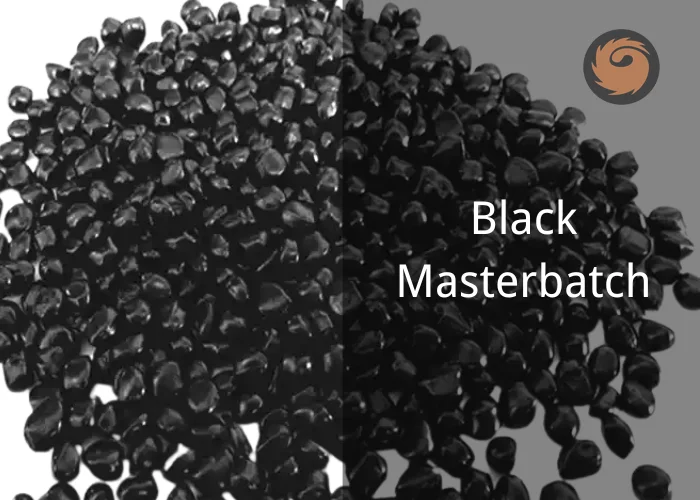Black masterbatch is a concentrated mixture of carbon black pigment and a carrier resin, used in the plastics industry to add a deep black color and improve various properties of plastic products. It's essentially a pre-dispersed form of carbon black, making it easier to incorporate into other plastic materials during manufacturing.

- Composition: Black masterbatch typically contains a high concentration of carbon black (15-50%) dispersed within a carrier resin, which could be polyethylene (PE), polypropylene (PP), or other suitable polymers.
- Function: It's primarily used to impart a deep black color to plastic products, but it also enhances other properties like UV resistance, mechanical strength, and electrical conductivity.
- Improved Color Dispersion: Masterbatches ensure a more uniform and consistent black color compared to adding dry carbon black powder directly.
- Enhanced Properties: Carbon black in masterbatches can improve the durability and performance of plastic products.
- Cost-Effectiveness: By optimizing pigment usage, masterbatches can lead to cost savings in the production process.
- Versatility: Black masterbatch can be customized for various applications and technical specifications.
- Standard Black Masterbatch – General-purpose, economical, suitable for non-critical applications.
- High-Jetness Black Masterbatch – For premium applications requiring intense, glossy black appearance (e.g., automotive, electronics).
- UV-Stabilized Black Masterbatch – Designed for outdoor use, offering superior weather resistance.
- Conductive/Antistatic Black Masterbatch – Formulated with special grades of carbon black for electrical conductivity.
- Food-Grade Black Masterbatch – Produced with FDA or EU-compliant materials for packaging and consumer goods.
Benefits:
Types of Black Masterbatch
Applications: Black masterbatch is used in a wide range of industries, including packaging, automotive, construction, agriculture, and more.
